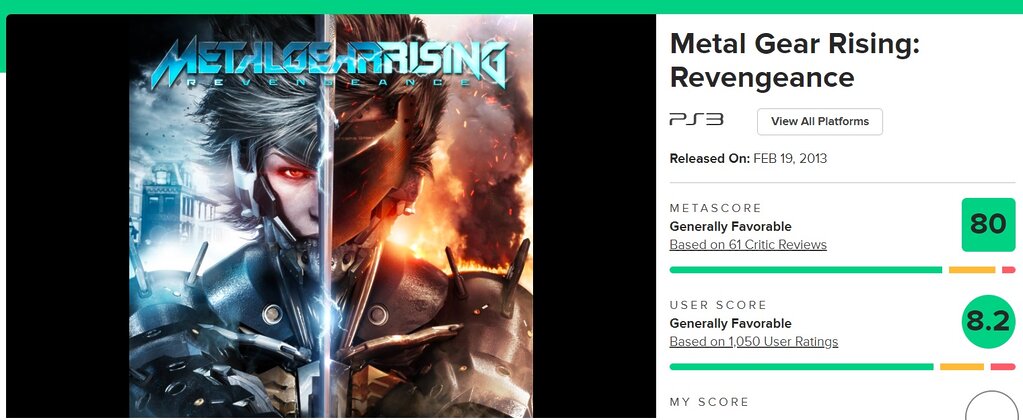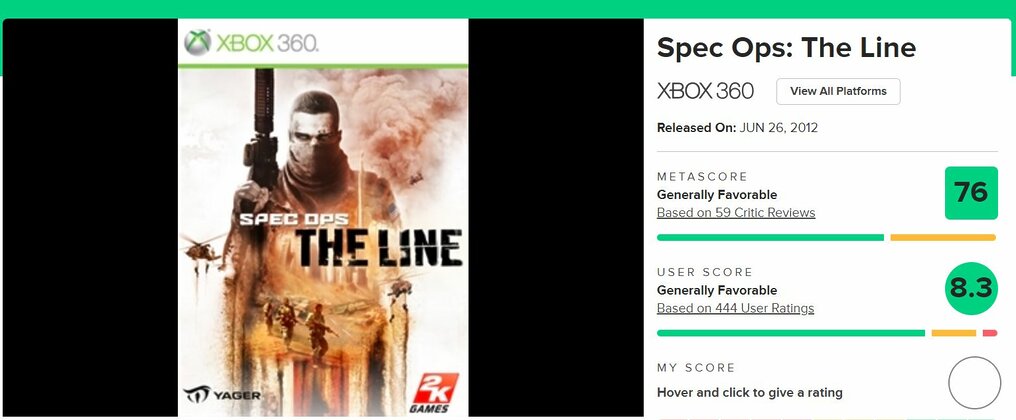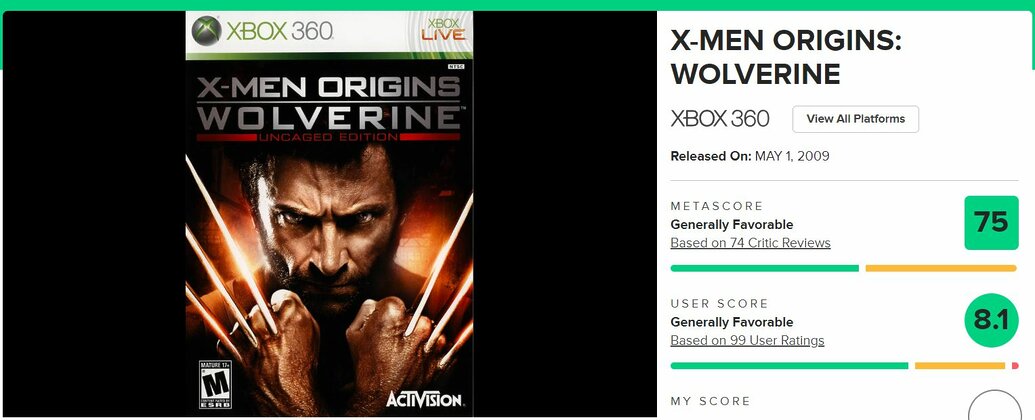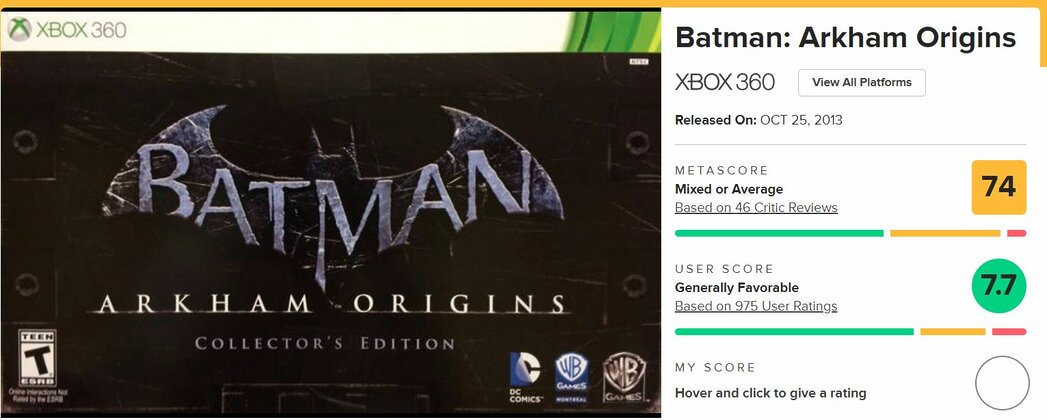- The gaming industry has diverted its focus onto the business side with its surge in popularity.
- Publishers aim for higher Metacritic scores, which is not the best approach due to subjectivity.
- Many games with unsatisfactory Metacritic scores by today’s standards are still classics, highlighting the flaws in this approach.
Over the last few years, the gaming industry has undergone significant changes due to its popularity surge.
With the industry’s focus shifting towards business, publishers place more importance on Metacritic scores than anything since high scores guarantee sales more often than not.
On the surface, this decision makes sense. The goal of a high score goes hand in hand with the aim of creating a good game. Many gamers also refuse to buy games scoring below a certain threshold, and I was part of this group at one point.
However, looking back at this thought process, my opinion has shifted drastically. A high critical score doesn’t necessarily equate to a good game. Many of my personal favorites have scored in the 70s, yet I have enjoyed them more than several 90/100 titles.
Why it matters: Publishers like Sony aim to hit the 90 Metacritic score mark for their games, which limits creativity, in my opinion.
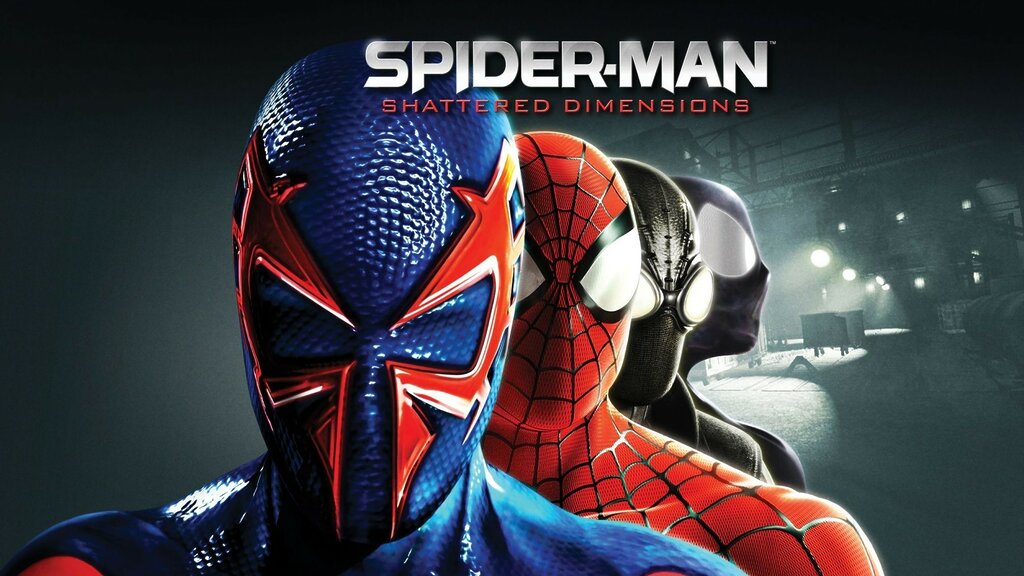
While most people don’t reference the user score, Metacritic’s failure to address the problem of legitimizing its user scores leaves me with next to no trust in the platform.
Games like Zelda: Tears of the Kingdom, Horizon Forbidden West, Final Fantasy 16, and more have been review-bombed on the platform. Anybody can make an account and leave a review since the platform does not require validation of any form.
The problem is big enough to where Metacritic has acknowledged it before, yet no reasonable fix has been made.
Days Gone director saying on stream how important is for Sony to hit high metacritic scores. That for this 100 + millions dollars games you can't just release a 70 meta yellow game and continue leading the franchises.
Is more important the brand high bar than sales. pic.twitter.com/wF6CacJYR0
— PS5 Pro 33 teraflops hurt your feelings (@Alejandroid1979) April 16, 2021
Publishers Specifically Aim For 90/100 On Metacritic
The Final Fantasy 7 Rebirth team targeted a 90/100 score, and the Days Gone director has been on record saying that Sony does not like to greenlight projects that will score a 70/100 for a $100 million budget.
This approach seems to be working for PlayStation, so where’s the problem? For starters, it means that most of PlayStation’s first-party titles are very safe. Sure, they have incredible production values, excel in story-telling, and deliver polished experiences.
However, PlayStation has often been criticized for sticking to a similar formula. This is not a PlayStation-specific problem since any publisher targeting these high scores will inherently stick to what has worked before.
In a medium like gaming, which prides itself on creativity, placing too much emphasis on Metacritic scores reduces risk-taking. It effectively homogenizes the industry’s output, making it so we play more of the same, albeit high-quality games.
Consider Days Gone as an example. Despite its 71/100 Metacritic score, many fans believe the franchise deserves a sequel. Numerous games have been known to hit their stride after the second release.
Assassin’s Creed, for example, came into its own with the second game. With the constant fixation on Metacritic scores, however, a game like the original Assassin’s Creed would never receive a sequel today.
The unfortunate truth is that Metacritic has become such a key part of the gaming industry that it can be used to predict future game sales and heavily influence publisher stock.
Not Every Game Needs To Be A Masterpiece
Like books, video games shouldn’t be judged by their cover. Rather than a plain Metacritic number, players should determine whether they want to buy the game with a detailed video review or an article.
Various blockbuster games that have developed a cult following over the years were deemed average on Metacritic at one point, which is partially why those franchises haven’t seen a new entry ever.
For example, Spec Ops: The Line tells a gripping narrative of war and what it means to be a soldier. As incredible as the game is, it only received a Metacritic score of 76/100.
Similarly, WB Games Montreal’s Batman Arkham Origins, often dubbed highly underrated and praised for its boss battles, scored just 74/100. Another great example is Spider-Man Shattered Dimensions, with a 76/100 Metacritic score.
Let’s also not forget Metal Gear Rising Revengeance and X-Men: Origins Wolverine.
Both games are unapologetically over the top, sacrificing other elements for their gameplay. While this means that the critics never found them too appealing, gamers who enjoy this type of game hold them dear to their hearts.
There are numerous other games like these, but they prove my point that some games should just be fun above anything else since not every release needs to be a 10/10 masterpiece.
Thank you! Please share your positive feedback. 🔋
How could we improve this post? Please Help us. 😔
[News Reporter]
Shaheer is currently pursuing a Business degree while also working as a part-time Content Writer. With his deep passion for both writing and video games, he has seamlessly transitioned into a role as a Journalist. Over the past two years, Shaheer has contributed as a freelancer to various websites and landed positions on acclaimed platforms like Gamerant. Currently, his role at Tech4gamers is as a Features Writer, but he also covers News occasionally. Shaheer’s favorite gaming franchises are Assassin’s Creed and the God of War series.
Get In Touch: shaheer@old.tech4gamers.com
 Threads
Threads